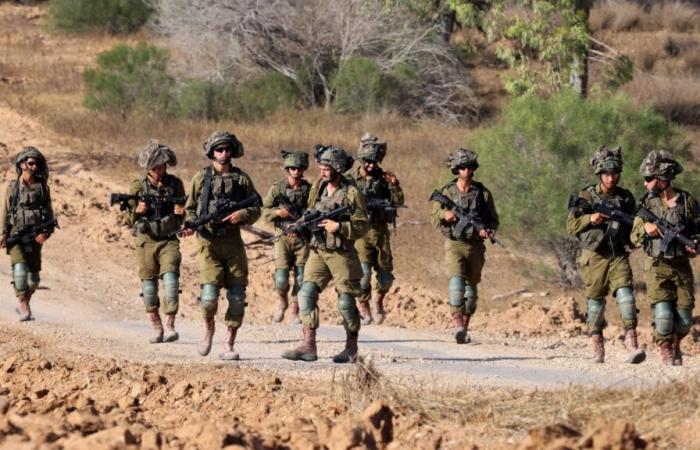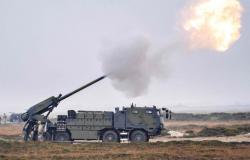While France and the United States are calling for a ceasefire in the Middle East, Israel is threatening “a possible entry” into Lebanese soil to strike Hezbollah. A perilous climb, however.
The fear of an escalation. While Israel bombed dozens of Hezbollah targets in Lebanon this Thursday, September 26, France and the United States called for a 21-day ceasefire in the region, fearing a regional conflagration.
Not considering a return to calm, the Israeli Minister of Foreign Affairs, Israel Katz, assured on his X account that he wanted to “continue to fight against the terrorist organization Hezbollah with all our strength until victory and until the return northern residents safely into their homes,” while Prime Minister Benjamin Netanyahu said the army would continue its fight against Hezbollah “with all necessary force.”
These comments come as on Wednesday, the chief of staff of the Israeli army, General Herzi Halevi, assured his soldiers to prepare “a possible entry” on Lebanese soil to strike Hezbollah, while for Israel is now sticking to airstrikes.
If Israeli Ambassador to the UN Danny Danon assured that his country would prefer to use diplomatic channels to secure its northern border with Lebanon, he assured that he was ready to use “all means” at his disposal if diplomacy came to pass. fail.
“Israel needs a victory” politically
What is the reason for considering a future Israeli incursion on Lebanese soil? International reporter for the BBC Jeremy Bowen believes in the columns of the British newspaper that this operation has political utility for Israel. “Israeli political leaders and generals need a victory. After almost a year of war, Gaza has become a real quagmire,” he explains.
“For the moment, Netanyahu has regained the lead (politically),” believes our international politics columnist Patrick Sauce, who recalls that the head of government “had crazy unpopularity with his kind of casualness vis-à-vis the fate of the hostages.
Israeli offensive in Lebanon: the specter of a “total war”
From now on, Benjamin Netanyahu has a lot to gain politically, according to Patrick Sauce, by “putting in the balance the fate of 60,000 to 100,000 Israelis (who had to leave their homes due to the strikes carried out by Hezbollah Editor’s note) and who could return home (in the event of success of the Israeli ground operation, editor’s note).” In the event of failure, the Prime Minister could “lose” the confidence of the Israelis, believes Patrick Sauce.
An “opportunity” for the Hebrew State
For Patrick Dutartre, general of the Air Force, former leader of the Patrouille de France, the Israeli army has “perfectly the means” to carry out a ground invasion in Lebanon, “but with limited ambition”.
The general believes that the strikes carried out by Israel over the past ten days show that “these operation plans were planned for a very long time”, but that “the political power seized an opportunity to deal an extremely significant blow to Hezbollah”.
“When you have someone in front of you who is overarmed, if you have an opportunity to disarm him, you don’t let this opportunity pass,” he judges. “Hezbollah is weakened enough that perhaps there is an opportunity to go a little further,” he says.
Hezbollah, a “well-prepared army”…
The operation should nevertheless prove delicate, believes, however, more pessimistic, Guillaume Ancel, former officer of the French Army and war chronicler, speaking to BFMTV.
“Hezbollah is a real army, unlike Hamas which has always been a chaotic collection of militiamen,” he notes on our set.
“There, we are not fighting against an army of shadows, it is an army estimated at 50,000 men who have been very well armed by Iran, who have been well prepared and who are controlled by Iran,” he emphasizes.
“Hezbollah is ‘a state within a state’ with much more sophisticated military capabilities (than Hamas),” Yoel Guzansky, a researcher at Tel’s Institute for National Security Studies (INSS), also told CNN. -Aviv.
…and growing military and strategic capabilities
Journalist Peter Beaumont agrees. He estimates in The Guardian that “Hezbollah is much better armed than it was in 2006, its militants are more experienced in combat after years of combat in Syria.”
The reporter is referring here to the failure attempted by Israel during a previous response carried out in response to Hezbollah strikes. A “33-day war” which ended with the withdrawal of Israeli soldiers.
CNN specifies that, according to military analysts, the Lebanese group currently has 30,000 to 50,000 men and 120,000 to 200,000 rockets and missiles including long-range ballistic missiles. The American media emphasizes that Hezbollah also has greater strategic capacity thanks to its allies in the Middle East, particularly in Iraq and Yemen.
Will the Israeli army be able to support two fronts?
Peter Beaumont, reporter for The Guardian, also points out that Israel also has its own difficulties in the planned land operation. He recalls in particular that “the worsening crisis in the West Bank is exhausting, while the conflict in Gaza continues.”
“The Israeli army has long boasted of fighting on several fronts, but the long operation against Hamas is still not completed and no clear plan has been developed for the future,” underlines Peter Beaumont.
For some experts, Israel’s ability to lead two fronts at once will depend on foreign support. The Jewish state “will have the capacity to do so if it receives ammunition from the Americans”, estimates Orna Mizrahi, Hezbollah expert at the INSS.
“But the United States is in the middle of a presidential election and Joe Biden probably feels trapped and must say to himself: ‘if I make a decision that exerts the slightest pressure on Israel, Donald Trump will fall on me'”, estimates Guillaume Ancel with BFMTV.






